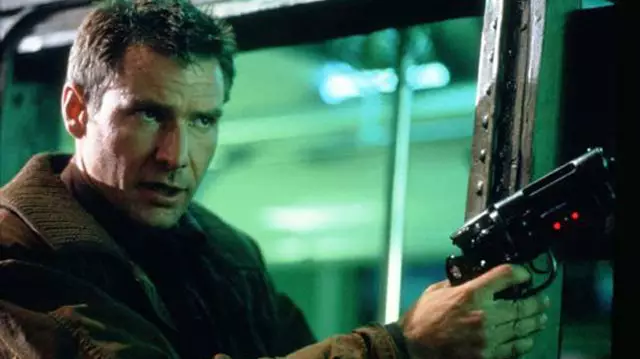Harrison Ford is a name that resonates with fans of cinema worldwide, synonymous with iconic roles and beloved franchises. However, his ascent to stardom was not as straightforward as one might assume. Initially, Ford was not regarded as a bankable actor. Ridley Scott shed light on this perspective when he recounted the early hesitations surrounding Ford’s casting as Rick Deckard in the groundbreaking science fiction film, Blade Runner. In an interview with GQ, Scott recalled how industry financiers questioned Ford’s qualifications, stating, “Who the f— is Harrison Ford?” This moment exemplifies how Ford’s status was yet to be recognized despite his prior role as Han Solo in the monumental Star Wars saga.
The pivotal moment for Ford came with Blade Runner, which was not just a film but a cultural phenomenon that helped define the sci-fi genre. His portrayal of Deckard showcased a complex character that blended heroism with vulnerability, setting Ford apart from conventional action stars of the time. This role, along with his work in the Indiana Jones franchise, positioned him as a versatile actor capable of navigating various genres, from action to drama. Following this, Ford continued to solidify his leading-man status through subsequent films like The Fugitive, allowing him to evolve and adapt to the changing landscape of Hollywood.
Today, at the age of 82, Harrison Ford remains an integral figure in the film industry. His recent engagements in projects such as the Yellowstone spin-off, 1923, and the Apple TV+ series, Shrinking, highlight a continuous evolution in his career. Such ventures demonstrate that Ford is not only a veteran actor but also an adaptable talent willing to embrace new formats and storytelling mediums.
The anticipation surrounding Ford’s upcoming role as Red Hulk in the Marvel Cinematic Universe’s Captain America: Brave New World reflects a significant trend in modern filmmaking, where legacy actors cross over into franchise films. This move speaks volumes about the industry’s willingness to integrate seasoned performers who bring depth and gravitas to superhero narratives. Moreover, Ford’s reprisal of Deckard in Blade Runner 2049 not only reignited interest in the franchise but also cemented his legacy within a continuation of a story that began decades earlier.
As production progresses on the Prime Video sequel series, Blade Runner 2099, speculation arises regarding Ford’s potential involvement. His capability for reinvention spans generations, as he bridges the gap between classic cinema and contemporary storytelling formats, ensuring that his impact will be felt for years to come.
In reflecting on his lengthy and successful career, Ford has articulated a fundamental truth about his passion for acting: it is rooted in human connection. He values the collaborative process with other creative individuals, stating that it provides him with essential human contact and the ability to engage in imaginative storytelling with extraordinary talents. This insight gives depth to the public’s perception of Ford—not merely as an enduring cinematic icon but as an artist committed to the craft and human experience.
Harrison Ford’s journey from a relatively obscure actor to a Hollywood titan underscores not just his dedication and adaptability, but also the industry’s evolution. His multifaceted contributions continue to inspire upcoming generations while redefining the nature of legacy in filmmaking.

